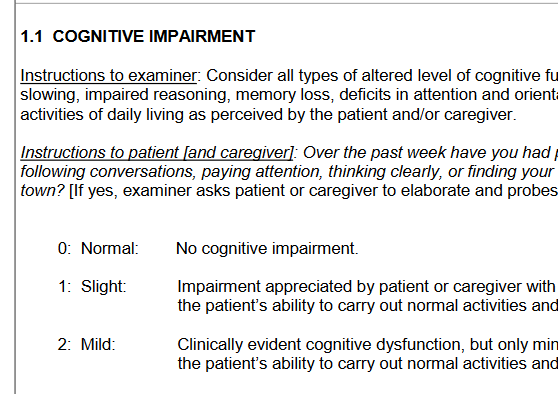Symptoms
Finally speaking to a doctor about his symptoms, she leads him through her standard list of questions.
Doctor: "When did you first start noticing these symptoms?" Alec:"Six months ago my right arm began trembling."
Doctor: "Have you experienced any other changes in your movement and coordination?" Alec:"Yes."
Doctor: "Have you noticed any stiffness or rigidity? Alec:"Yes, especially in my right arm."
Doctor: "Have you been feeling unsteady or have fallen more than usual? Alec:"Yes."
Doctor: "Have you had any changes in your smell or sleep patterns?" Alec:"No changes in smell, but I haven’t been able to sleep more than a few hours a night."
"I have been avoiding handwriting because it's too difficult to control my hands.”Doctor: "Have you noticed a change in your handwriting at all?" Alec:"Yes, I have been avoiding handwriting because it's too difficult to control my hands."
Doctor: "Do you have a family history of movement disorders or Parkinson’s?" Alec:"Yes, my Uncle had Parkinson’s before he died."
At this stage the doctor suspects Parkinson’s disease but it's important to be thorough because there are several conditions that are parkinsons presenting.

Later, after some tests, Alec has a phone call with the doctor
Doctor: "Hello, Mr Johnson. I've reviewed your recent tests, and while we have some information, I believe additional imaging tests would provide us with a more comprehensive picture. Specifically, I'd like to schedule a DaTscan and a PET scan. These tests will help us gather more detailed information before making any final diagnoses. Are you available to come in for these scans?"
Alec: "Sure, Dr. Turner. Can you tell me more about these scans and why I need them?"
Doctor: "Of course, Mr. Johnson. A DaTscan will allow us to assess the dopamine levels in your brain, helping us understand any potential issues related to Parkinson's disease. The PET scan, on the other hand, provides a broader view of brain activity and can help rule out other conditions. It's part of our effort to gather as much information as possible before making any definitive diagnoses. Can we schedule these tests for you?"
Alec: "I see. Yes, I can come in for the scans. When would you suggest?"
Doctor: "Great. We can schedule the scans for next Tuesday afternoon. Does 3:00 PM work for you?"

